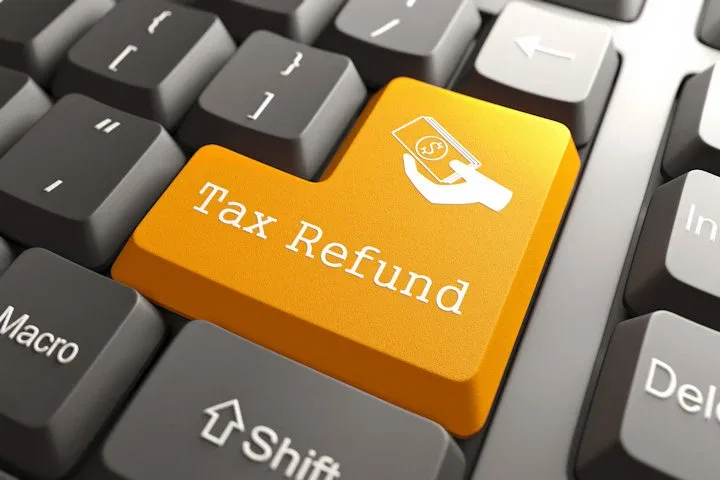A tax refund is a reimbursement for any excess money paid in taxes to the government. It can happen when an employer withholds too much from paychecks or when a taxpayer is eligible to tax benefits. Self-employed individuals can also pay excess tax to be on the safer side. In most cases, a tax refund is issued automatically but you may need to make a formal claim in some cases.
Claiming a tax refund from KRA is a fairly simple process. However, many go for years without knowing if they even have a tax refund to claim since it’s not common knowledge. Tax refunds are usually paid at the end of the respective year and must be done before 31st July. Taxpayers also have 5 years to apply for a tax refund from the time the tax was filed. Therefore, if you’ve missed the application window this year, you can still apply next year as long as the 5 years haven’t elapsed.
Types
There are three types of tax refunds in Kenya depending on the circumstances of the application. They include:
- Income Tax Refunds
An income tax refund must be made within five years from the date the tax was paid. They can arise from various circumstances such as exemptions based on disability, withholding tax, advance tax credits, over deduction of tax (PAYE) by the employer, tax incentives on mortgage interest relief, insurance premium relief, and annual tax relief and overpayment of instalment taxes.
- VAT Refunds
VAT refunds occur when there is an excess credit arising from withholding VAT, overpayment of taxes due to excess credits resulting from zero-rated supplies, and bad debts, within a period of three to four years from the date of supply, where a registered person has not received any payment from the person liable to pay the tax.
- Excise Tax Refunds
Excise tax refunds can arise when a person dealing with excisable goods manufactured in or imported into Kenya has paid excise duty. Refunds are granted under certain circumstances including returned goods as per the contract of sale, damaged or stolen goods during transportation, or excise duty paid on spirits or illuminating kerosene subsequently used to manufacture un-excisable goods.
Procedure
To claim a tax refund you need to follow these easy steps;
- Log in to the KRA itax portal using your KRA pin and password.
- After you have logged in, click on Refunds, and choose the relevant tax obligation for which you’re claiming the refund.
- After selecting, verify your taxpayer details and proceed to the next step.
- Fill in the details of your bank account where the refund should be credited.
- Select the relevant tax refund type, for instance, income tax refund or excise tax refund, the reason for the claim and the amount.
- Upload any necessary documents to support the refund claim.
- Verify the information provided then submit for review.
- Once you receive an acknowledgement receipt, save it for future use.
Tax refund claims are usually processed within 90 working days from the day of submission. If needed, you can call 0711 099 999 on any network or write an email to: [email protected] for assistance from a KRA representative. You can also use the acknowledged receipt number to track the status of your tax refund application
In some cases, the KRA may not issue a refund but will deduct the excess amount from the tax payable in the subsequent year.
Note: First-time claimants may undergo a pre-payment audit for verification purposes.
Payment Methods
All taxpayers who claim a tax refund can receive their payment through any of these two ways;
- Paper cheques: These are standard paper cheques issued by banks. You need to provide the current bank account number or details, and you correct postal address.
- Real-time gross settlements (RTGS/NECS): This is a funds transfer system that allows the instantaneous transfer of money. You need to provide your bank account (at least 10 digits), the MICR/IFSC code of the bank branch and the necessary communication address such as an email or phone number in order to allow direct credit of the refund to the bank account.
Note: Making a fraudulent or false tax refund claim is a serious offence and will lead to penalties. Offenders may be liable to pay an amount equal to or twice the value of the claimed refund.
Eligibility
Kenya Revenue Authority (KRA) provides tax refunds to certain groups of taxpayers who meet specific requirements. These groups include:
- Life and Education Insurance Policy Holders: If you’re an individual who has an insurance policy covering life and/or education expenses and have not received relief for these policies from your employer, you may qualify for a tax refund.
- Excess Tax Deducted at Source: If you’re a taxpayer who has paid tax deducted at source, which exceeds their final tax liability, you may be eligible for a refund.
- Individuals with Mortgage or Home Ownership Plans: If you’re an individual with mortgage plans or home ownership schemes from designated financial institutions, which are listed on the 4th schedule of the Income Tax Act, for owner-occupied properties, and have not received relief from their employer, you may be eligible for tax refunds.
- Resident Individuals without Personal Relief: If you’re a resident individual who wasn’t granted personal relief during the tax year, you may be eligible for a tax refund.

